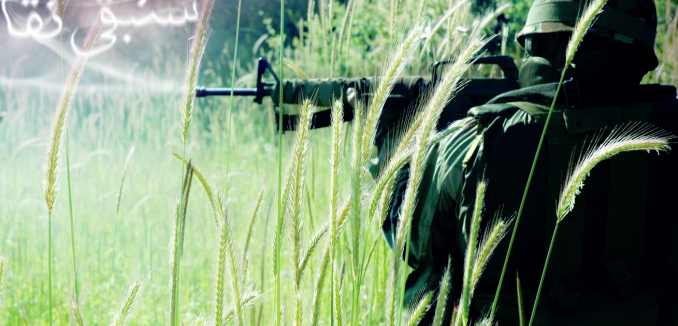After the alleged Israeli attack on the Syrian side of the Golan Heights ten days ago, the Lebanese newspaper As-Safir published an article entitled “More than reaction, less than war“( Arabic link) in which the author explained Hezbollah’s wish to avenge the death of its senior member in southern Syria, but at the same time avoid sparking an extensive war with Israel. As predicted in the article, Hezbollah retaliated with the rocket attack on January 28, which left two Israeli soldiers dead.
However, the Arab-language media did not spare criticism from Hezbollah following the attack. Media headlines screamed this morning: “Hezbollah puts Lebanon in the circle of danger” and “Hezbollah puts Lebanon at the door of a new war“( Arabic links). The Arab concern is that Hezbollah will drag Lebanon into a war because of its activities on Syrian soil where thousands of its fighters are helping prop up Syrian dictator Bashar al-Assad. The fighting there has drawn the attention of the Islamic State of Iraq and Syria (ISIS), who wants to hit back at Hezbollah’s home turf in Lebanon.
Commentators stress that Hezbollah knows that its involvement in the Syrian quagmire has produced tensions within the Lebanese arena. So the Iranian-backed Shiite militia headed by Hassan Nasrallah wants to avoid unnecessary shocks and would not expand its activities unless forced to do so.
Al Jazeera’s commentator in Beirut raised the possibility that further escalation would harm the negotiations taking place between Hezbollah and the Al-Mustaqbal party, which are designed to reach a compromise to fill the vacant Lebanese presidency (Lebanon has been functioning without a president for eight months) and mitigate the Sunni-Shiite tensions in the divided country. Hezbollah will try to avoid anything that would cause the collapse of these negotiations.
Although Hezbollah is promoting this latest attack against Israel as an achievement, there are growing voices among supporters of the terror group who wanted to avoid an immediate retaliation against Israel. These voices understand that deterioration into war will harm all of Lebanon and will put Hezbollah in a very vulnerable position in the political arena.
And, of course, ISIS is also in the picture. Omer Einav of the Institute for National Security Studies recently wrote (Hebrew link) that ISIS and Jabhat al-Nusra seek to expand the fighting across the border of Syria – to Lebanon, and bring the “land of cedars” into the cycle of violence.
“Their success to do so will realize the Lebanese nightmare. Nasrallah needs to take this looming possibility into consideration, if he chooses to risk a confrontation with a high potential for damage.”
Therefore, Hezbollah is trying to take advantage of the attack in order to present itself to the people of Lebanon as a strong power and strengthen its deterrence while obscuring its present troubled situation over its growing losses in the Syrian arena. Hezbollah’s involvement and losses in Syria has caused the Iranian-backed terror group to lose support in Lebanon.
However, Hezbollah also knows that if war breaks out it will find it difficult to cope on three fronts – Syria, Israel and Lebanese internal politics – at the same time.
[Photo: Moqawama (Hezbollah) Website]




